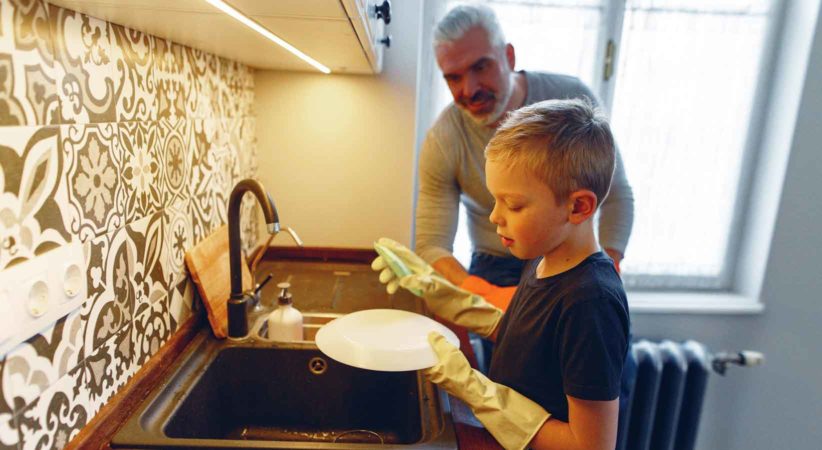
Physical Literacy & Cleaning Up
We all know that kids can be messy. But with a little patience, practice and persistence, children can develop a sense of satisfaction from cleaning and learn valuable life skills along the way. Some believe the job of cleaning is for adults or get frustrated when kids don’t do a thorough job. However, if we deny children the chance to learn these skills, they will have trouble developing a sense of responsibility for their surroundings.
“The task of children is to develop into adults. In order to do this they must practise and take part in day-to-day activities; otherwise they simply will not understand why they should take care of their environment, or develop the skills to do so.” – Amii Spark
The act of cleaning up can be part of good physical literacy.
“Physical literacy is the motivation, confidence, physical competence, knowledge and understanding to value and take responsibility for engagement in physical activities for life.” – Participaction
Cleaning helps kids keep active. If you incorporate a sense of play, children can enjoy tidying up while keeping their bodies active and moving. Cleaning can also help develop skills such as sorting and organization, as well as the vocabulary of daily life, known as functional language.
In the video below, an early childhood educator gives an example about how to adjust your language to help kids learn to clean up.
To learn more about the benefits of children tidying up and fun ways to get them involved, check out the resources below.
Resources
- 4 fun ways to get kids cleaning up and developing skills
- 5 Ways Cleaning Can Help Your Child’s Development
- Cleaning Up with Early Learners
- First Words: Cleaning Up Toys Practicing Functional Language in Daily Routines
- Helping Hands: Teach Your Preschooler to Help Clean Up
- Why ‘Cleaning Up’ is a Valuable Learning Experience
Related Blog Posts
Friday Fun: Children’s Books Quizzes
Check your knowledge of children’s books with these quizzes.
Outdoor Active Play in Winter
It’s cold outside, but that doesn’t mean active play is limited to indoors. Outdoor active play supports healthy development all year long.
Teaching Time
Read about resources to help children learn about the passage of time.
